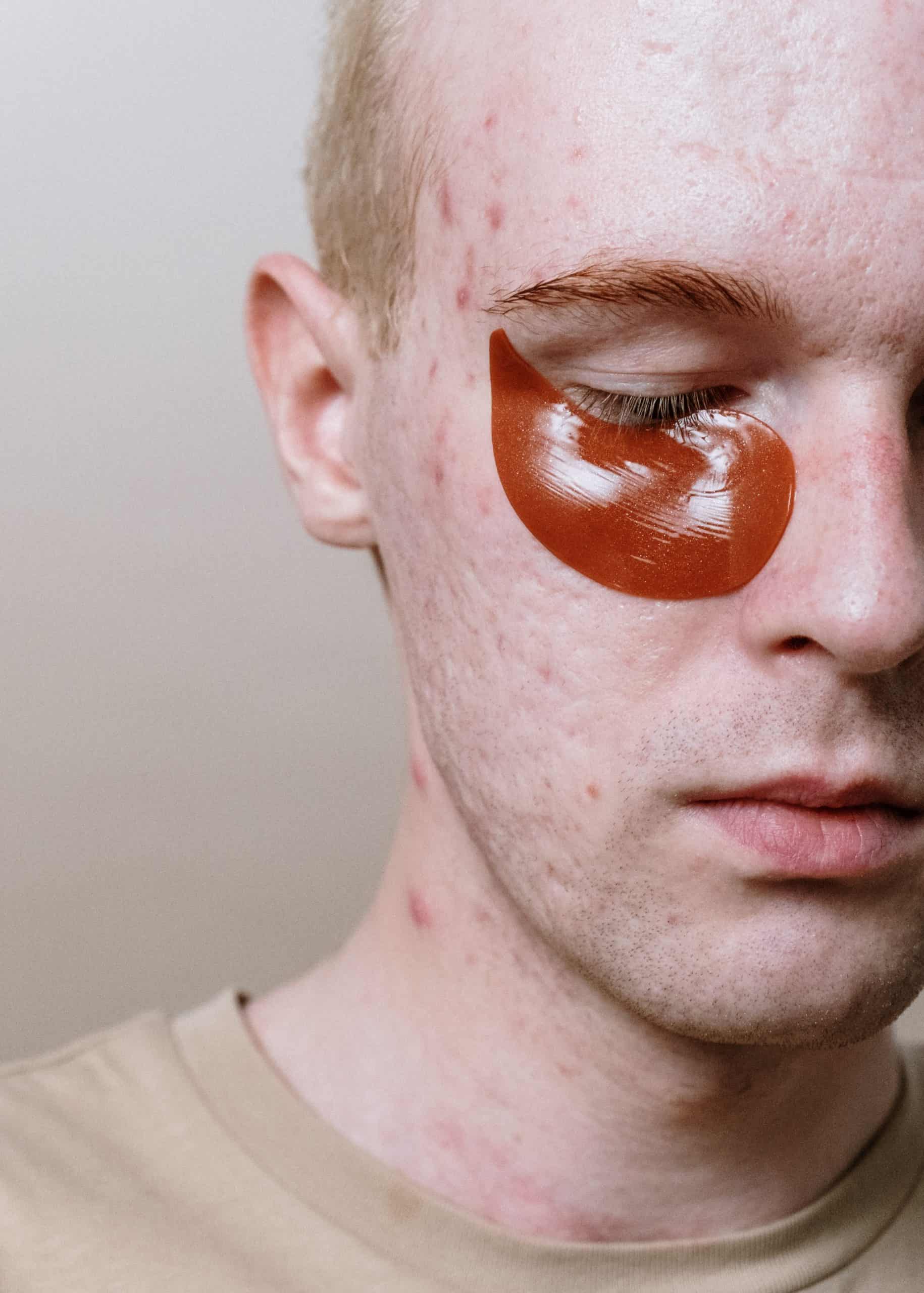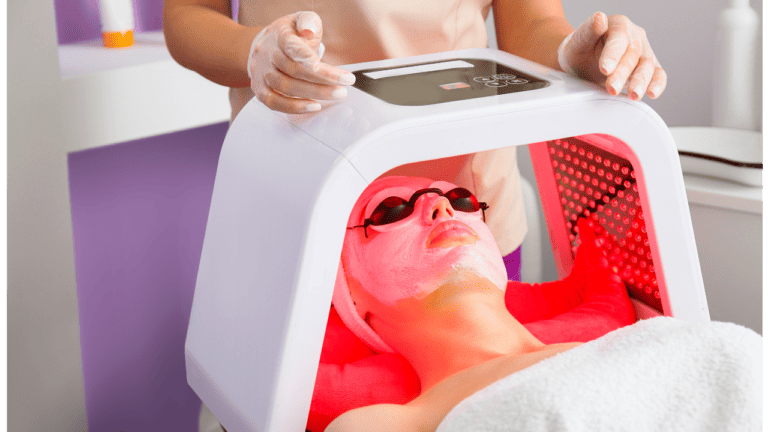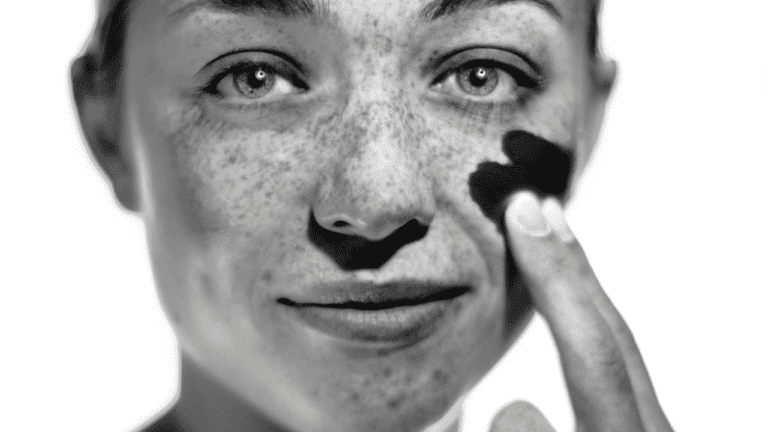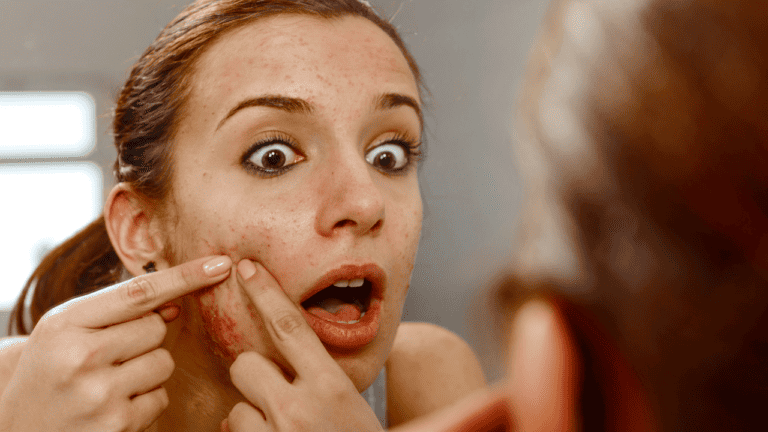Acne can be a challenging issue and it seems like it can pop up anywhere – even on your temples! While trying to clear up acne is frustrating, what if it indicates more than just a typical breakout? Whether you’re dealing with occasional pimples or a more persistent problem, read on to gain insight into what acne on your temples means and how to manage it.
Why Do We Get Acne On Our Temples?
Acne on your temples can be caused by a variety of factors, such as hair products, sweating, friction, dirty hats or headbands, stress, and hormonal imbalances.
It is important to know the underlying cause of acne on your temples so that you know how to treat and prevent future breakouts.
Dirty Hats or Headbands
Dirty hats or headbands can be a surprising cause of acne on your temples. When you wear hats or headbands for extended periods without washing them, they can accumulate dirt, bacteria, and oils, which can be transferred to your skin, clogging your pores and causing acne. The friction caused by wearing a tight-fitting hat or headband can also lead to irritation and inflammation in your temples.
To prevent acne caused by dirty hats or headbands, it is crucial to keep them clean. Washing hats and headbands regularly in hot water and detergent can help remove any buildup of dirt and bacteria. You can also try using cotton or other breathable materials to reduce sweat buildup and friction on your skin.
Exercise
Exercise is a great way to stay healthy, but it can also greatly contribute to acne on your temples. When you exercise, you sweat, and that can mix with oil and bacteria on your skin, leading to clogged pores and acne breakouts.
To prevent this, think about how you can keep your skin clean and dry throughout your exercise. Wearing breathable clothing and using a clean towel to wipe off sweat during and after exercise can help. If you use a full-service gym, consider using their shower immediately after exercising instead of going home to remove any sweat, oil, and bacteria from your skin as fast as possible.
Of course, with exercise, some people enjoy wearing tight-fitting hats or headbands and as we mentioned earlier they can trap sweat and bacteria on your skin so think about changing your headband throughout the exercise or removing it altogether if possible.
Stress
Stress is another surprising cause of acne on your temples. When you are stressed, your body produces more cortisol, a hormone that can stimulate oil production in your skin, leading to clogged pores and acne breakouts.
Regular exercise, meditation, and other relaxation techniques can be helpful in reducing stress levels. You can also try incorporating a skincare routine into your self-care regimen, using products that are gentle and non-irritating to your skin.
Hormonal Imbalances
If you’ve tried everything to get rid of acne on your temples, such as changing hair products, washing hats, and exercising regularly, but nothing seems to work, then it’s possible that a hormone imbalance might be the culprit.
Hormonal imbalances are a common cause of acne on your temples. If you’re experiencing puberty, menstruation, pregnancy or menopause, you might have hormonal fluctuations that increase oil production and might result in acne. Let’s get into why hormones might be the culprit
To prevent acne caused by hormonal imbalances, it is important to regulate hormone levels. Birth control pills can be effective in treating acne, as they can help regulate hormone levels. However, it is essential to consult a doctor before starting any medication, as they can have side effects and risks. In severe cases, a doctor may prescribe medication such as spironolactone or isotretinoin to help control hormonal imbalances and reduce acne in your temples. Lifestyle changes, such as a healthy diet and exercise, can also help regulate hormone levels and reduce acne breakouts.
Hormonal Imbalances and Acne On Your Temples
Why Hormones Matter
Hormones are responsible for regulating many processes in your body, including oil production in your skin. Hormonal imbalances, caused by stress, puberty, menstruation, pregnancy, and menopause, can lead to an increase in oil production, which can clog pores and lead to acne breakouts.
The Role of Androgens in Acne
Androgens, also known as male hormones, are present in both males and females and play a significant role in the development of acne. Androgens stimulate the sebaceous glands, which produce oil, leading to a buildup of oil and dead skin cells in hair follicles. This buildup can cause the formation of pimples, blackheads, and whiteheads on your temples and other areas of your face.
How Birth Control Can Help
Birth control pills can help regulate hormonal imbalances and reduce acne on your temples. They work by reducing androgen production, which can lead to less oil production and fewer breakouts. However, it is essential to consult a doctor before starting any medication, as birth control pills can have side effects and risks.
When to See a Doctor
If you are experiencing severe acne on your temples or are not seeing improvement with over-the-counter remedies, it is essential to see a dermatologist for further evaluation and treatment. A dermatologist can prescribe medication, such as spironolactone or isotretinoin, which can help control hormonal imbalances and reduce acne breakouts.
FAQs about Acne on Your Temples
How long does it take for acne on the temples to clear up?
Mild acne breakouts may clear up within a few weeks with proper care, such as regular washing and over-the-counter acne treatments. Moderate to severe acne breakouts may take longer to clear up, and it may take several weeks to months to see significant improvement. It’s important to remember to be patient and consistent with your treatment, as some treatments can take time to work.
Can hair products cause acne on the temples?
Your hair products can be the sneaky culprit behind your acne on the temples. These products can contain oils and chemicals that can clog your pores and cause breakouts. If you love using hair products, make sure to wash your hair regularly and avoid using oily or greasy hair products that can transfer onto your skin.
Final Notes
Don’t let acne on your temples bring you down! Understanding the cause is key to managing and controlling it. Take care of your skin and seek advice from a dermatologist when necessary to improve the health and appearance of your skin. It’s time to glow up!





